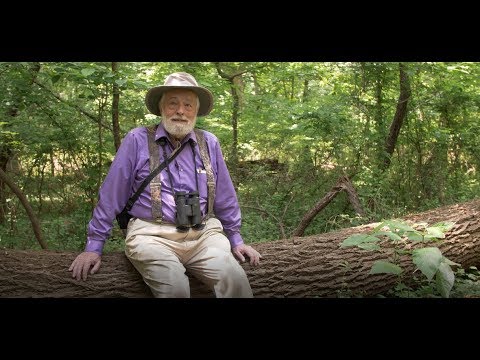Discover the Outdoors: Naturalist Jobs & Salaries

Naturalist Job Description Template
Naturalist Job Description A naturalist is an individual who has a deep passion for and extensive knowledge about the natural world. They play a crucial role in environmental education, conservation, and research. Naturalists work in various settings including national parks, wildlife reserves, museums, zoos, and educational institutions. One of the key responsibilities of a naturalist is to educate and engage the public about the environment and its inhabitants. They lead guided nature walks, give presentations, and organize workshops to raise awareness about the importance of conservation. Naturalists also conduct research to gather data on ecosystems, wildlife behavior, and biodiversity. Fieldwork is an integral part of a naturalist’s job. They spend a significant amount of time outdoors, observing and studying plants, animals, and their habitats. They document their findings through photographs, videos, and written reports. This data is used for scientific research, conservation planning, and environmental impact assessments. Another essential aspect of the naturalist’s role is to advocate for environmental protection and sustainable practices. They collaborate with government agencies, non-profit organizations, and community groups to develop and implement conservation strategies. Naturalists may also participate in habitat restoration projects and wildlife monitoring programs. To become a naturalist, a strong background in biology, ecology, environmental science, or a related field is typically required. Excellent observational skills, attention to detail, and the ability to communicate complex scientific concepts in an accessible manner are essential qualities. Passion for nature, patience, and a love for outdoor activities are also important attributes for success in this profession. In summary, naturalists are passionate environmental educators, researchers, and advocates who work to increase public awareness about the natural world and promote sustainable practices for its preservation. They are key contributors to the conservation and understanding of our planet’s ecosystems and biodiversity.Naturalist Responsibilities
Naturalist Requirements
How Much Does A Naturalist Make?
Naturalist Salary
| Job Title | Median Salary | Salary Range |
|---|---|---|
| Naturalist | $53,360 | $34,240 – $80,710 |
A naturalist is a professional who studies and observes various aspects of the natural world, including plants, animals, and ecosystems. They often work in national parks, wildlife reserves, or environmental organizations. Naturalists have a deep understanding of ecology and biodiversity, and they play a crucial role in conservation efforts.
The median salary for a naturalist is $53,360 per year. However, the salary range can vary depending on factors such as experience, location, and employer. Entry-level naturalists may earn around $34,240 annually, while those with significant experience and expertise can make up to $80,710 or more.
Overall, naturalists are passionate individuals who dedicate their careers to understanding and protecting the natural world. They contribute to scientific research, educate the public, and help preserve our planet’s precious ecosystems.
Naturalist Salaries by Country
Top Paying Countries for Naturalist
| Country | Average Salary (USD) |
|---|---|
| United States | 68,000 |
| Australia | 60,000 |
| Canada | 55,000 |
| Norway | 50,000 |
| New Zealand | 48,000 |
| Switzerland | 45,000 |
A naturalist is a professional who studies and observes the natural world, including plants, animals, and ecosystems. The salary of a naturalist can vary depending on the country they work in. According to data, the top paying countries for naturalists are the United States, Australia, Canada, Norway, New Zealand, and Switzerland. In the United States, the average salary for naturalists is around $68,000 per year. Australia follows closely with an average salary of $60,000. Canada offers an average salary of $55,000, while Norway and New Zealand offer $50,000 and $48,000 respectively. Switzerland completes the list with an average salary of $45,000. These countries value the important work of naturalists in preserving and understanding the natural environment. With competitive salaries, they attract skilled professionals who are passionate about the study and conservation of nature.
A video on the topic Naturalist
Video Source : Office of Sustainability at Princeton UniversityInterview Questions for Naturalist
1. What is a naturalist?
A naturalist is a person who studies and has a deep knowledge of the natural world, including plants, animals, ecosystems, and their interactions.
2. What are the main responsibilities of a naturalist?
The main responsibilities of a naturalist include conducting research, collecting and analyzing data, observing and documenting wildlife, educating the public about nature, and promoting conservation efforts.
3. What skills are important for a naturalist to have?
Important skills for a naturalist include strong observation skills, knowledge of biology and ecology, ability to conduct field research, excellent communication skills, and a passion for the natural world.
4. What are the career opportunities for a naturalist?
Career opportunities for a naturalist can include working as a wildlife biologist, environmental consultant, park ranger, nature guide, wildlife photographer, or conservationist.
5. How does a naturalist contribute to conservation efforts?
A naturalist contributes to conservation efforts by conducting research on endangered species, monitoring and protecting ecosystems, educating the public about the importance of conservation, and advocating for sustainable practices.
6. What are some challenges that naturalists face in their work?
Some challenges that naturalists face in their work include limited funding for research, habitat destruction, climate change, and the need to balance conservation with human development.
7. How can someone become a naturalist?
To become a naturalist, one can pursue a degree in biology, ecology, or a related field. Field experience and internships are also valuable in gaining practical skills. Joining local nature organizations and participating in citizen science projects can also help develop knowledge and experience.
8. What are the benefits of being a naturalist?
Benefits of being a naturalist include the opportunity to work outdoors, explore and study nature, contribute to conservation efforts, share knowledge with others, and make a positive impact on the environment.
9. How does a naturalist educate the public about nature?
A naturalist educates the public about nature through guided nature walks, workshops, lectures, writing articles or books, creating educational materials, and using social media platforms to share information and raise awareness.
10. Why is the role of a naturalist important in today’s world?
The role of a naturalist is important in today’s world because it helps increase awareness and understanding of the natural world, promotes conservation efforts, and encourages sustainable practices to protect biodiversity and ecosystems for future generations.






